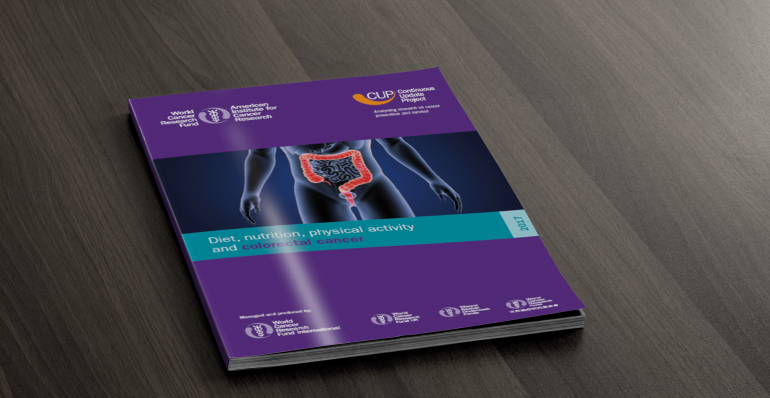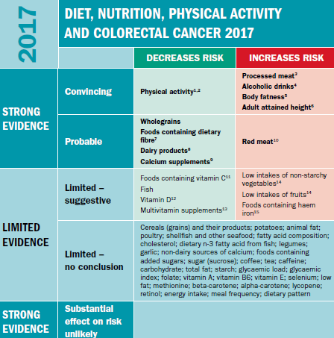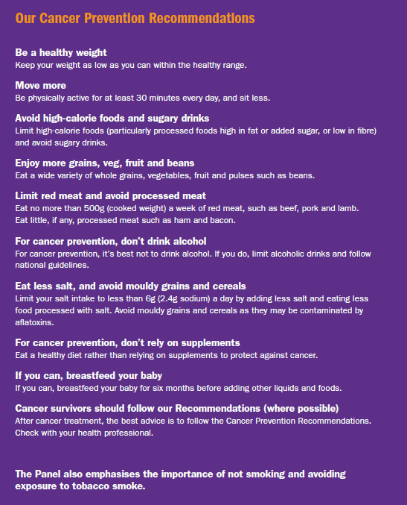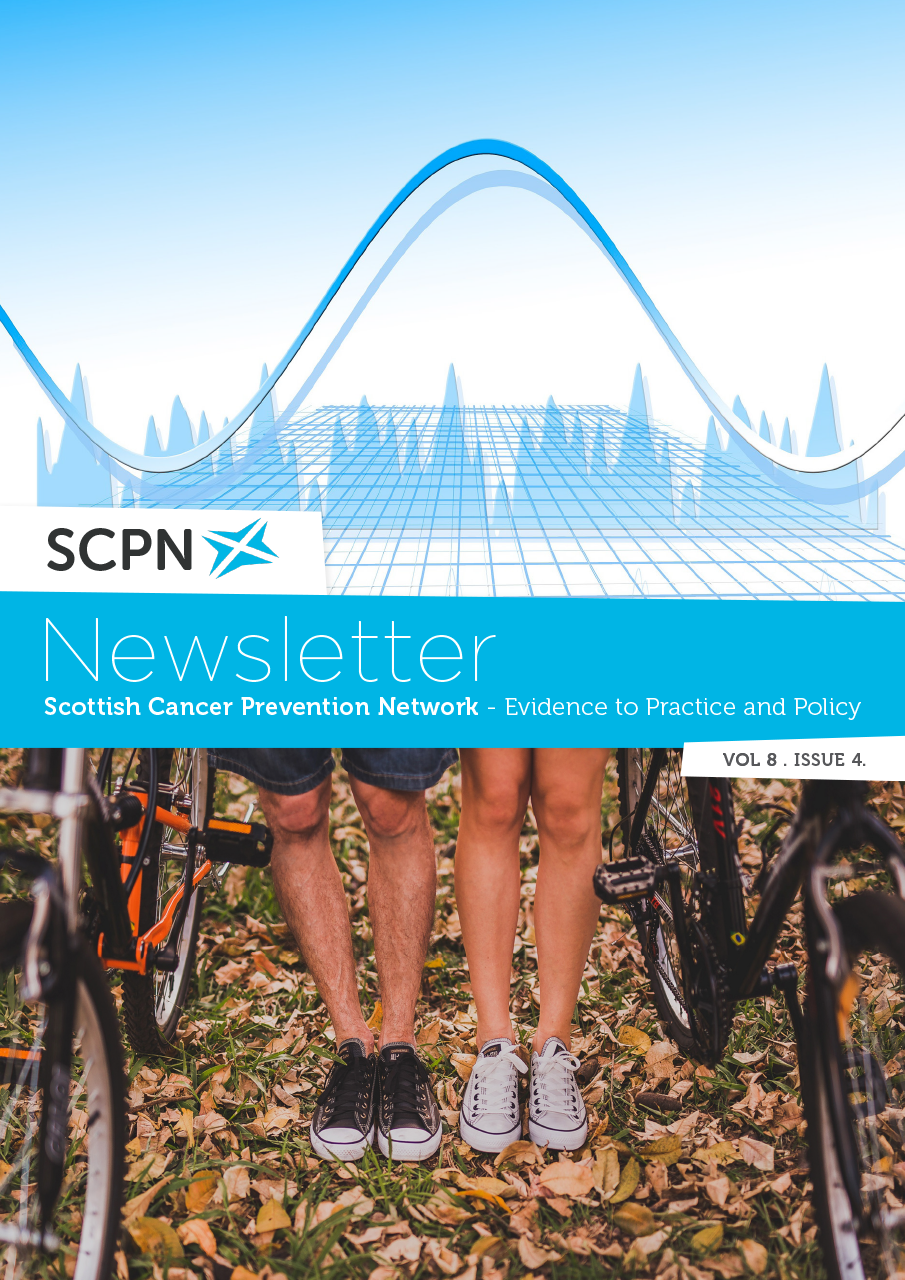
Have you seen this report?

18 Oct 17 |
Colorectal cancer (CRC) is one of the most common cancers both in the UK and worldwide. It is the 4th most common cancer in the UK and 3rd most common in Scotland with 3,671 cases diagnosed in 2015. Although its incidence in Scotland and the UK has seen a decline in recent years, globally CRC rates are rising. The highest rates are seen in Australia and New Zealand and the lowest rates in West Africa. It is not all bad news however as this type of cancer is very preventable – it is estimated about half of cases could be prevented by adhering to WCRF recommendations and if caught early its 5 year survival rates are 90%.
The World Cancer Research Fund (WCRF) systematically reviews worldwide research into lifestyle choices which impact on the risk of developing many cancers. Its latest publication, as part of its Continuous Update Project (CUP), concentrates on CRC and provides updated evidence on the risk factors which impact the odds of developing the disease.


The report finds there is strong evidence that being physically active and eating a diet rich in wholegrains, fibre, and dairy products reduces the risk of developing CRC. Calcium supplements are also protective. However there is also strong evidence that consumption of processed meats (meats preserved by smoking, curing, salting and chemical additives) and red meat (beef, pork and lamb) raises the risk of CRC. In addition there is strong evidence that alcohol consumption and being overweight or obese increases the risk also. Smoking is also known to be a risk factor for developing CRC.
This evidence will inform updated recommendations from the WCRF which are expected to be published in early 2018.

The SCPN Newsletter: Volume 8, Issue 4
The last issue of 2017 packed full of the evidence and examples of good practice underpinning cancer prevention in Scotland. In this issue: Moving More: A workplace challenge, Yorkshire Bike Libraries, ActWELL Study - Full steam ahead, Reflections on 'gender neutral' HPV immunisation, Ongoing Scottish Research and more.